
Startups keep innovating in the Triangle despite warning signs in the wider economy.
As many founders and venture capitalists are fond of saying, some of the most resilient startups are founded during downturns – from Amazon (Nasdaq: AMZN) to Google (Nasdaq: GOOG).
Here are 12 startups Triangle Inno is watching in 2023. They run the gamut, from potentially life-saving innovation in health care to runway-ready fashion in the metaverse.
CareYaya
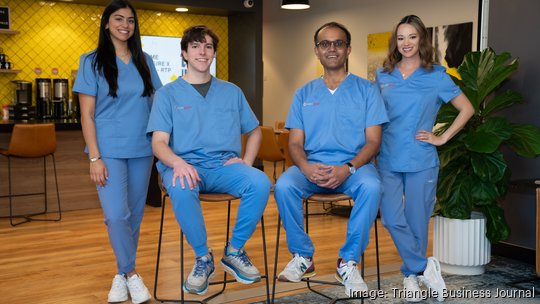
The Raleigh health-tech startup aims to disrupt the “broken system of care,” by connecting clients with affordable care from pre-health college students. The goal? To address the caregiver shortage. Cofounded by Neal Shah and Gavry Eshet, the online marketplace it’s created to connect families with affordable elder care follows the gig economy format established by the likes of Lyft and Uber. The firm piloted its platform in 2022 at UNC-Chapel Hill, then North Carolina State University and Duke University. And as of earlier this year, it had already vetted and recruited 2,000 student caregivers and served 800 families across the Triangle.
CureMint

The Durham startup, led by CEO Brandon McCarty, aims to help dental organizations grow faster using an automated, all-in-one procurement platform. McCarty sees the firm as a disruptor, pointing out last year that dental practices often use the same systems they used years ago. CureMint, cofounded by Chris Rathgeb, seeks to modernize and simplify and, as of last year, managed more than $42 million in spending on its platform. Investors are buying in, as securities filings show the firm recently raised $1.3 million.
House of Blueberry
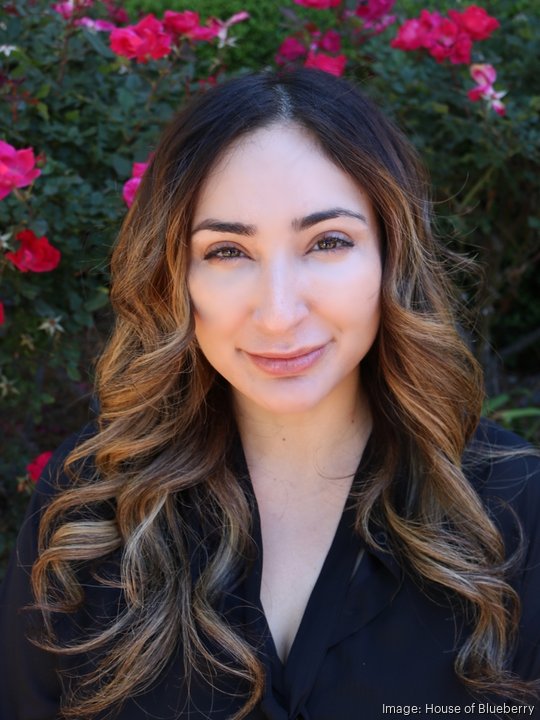
The Wake Forest fashion startup is the brainchild of serial entrepreneur Gizem Mishi McDuff. Its styles aren’t getting a New York fashion week debut – at least not in the traditional sense. That’s because the shimmery tank tops, strapless party dresses and designer sunglasses it’s putting out are for the metaverse. They dress avatars in video games such as Roblox and The Sims. And investors are buying in, as the firm recently closed on $6 million. McDuff founded the firm after creating fashions for her own Second Life avatar, and realizing there was a market. She started a virtual store which, within three years, made more than $1 million, and grew into what would become House of Blueberry in the Triangle.
Levee Medical
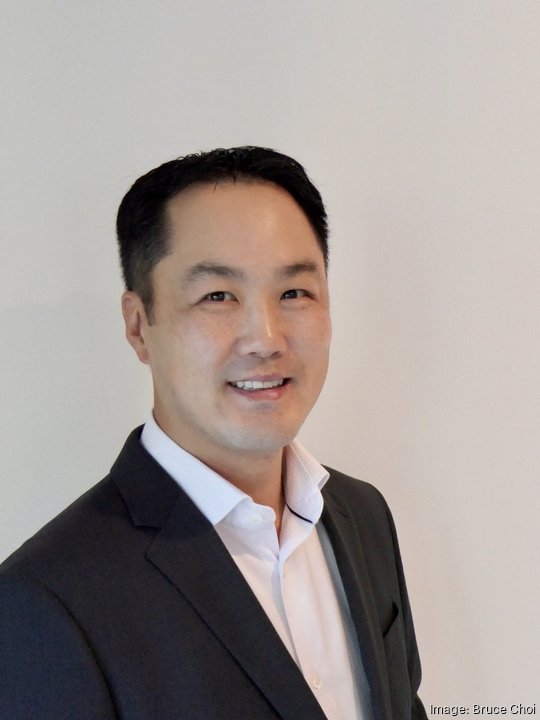
The Durham startup, founded by Bruce Choi, closed on a $6.6 million raise last year to develop a device to improve patient outcomes following prostate cancer surgery. The company is developing a bioresorbable device that's implanted in patients during a prostatectomy procedure to treat urinary incontinence. Prostate cancer is the second most common type among men, and the primary surgery for these patients is radical prostatectomy. But there are risks with the surgery, after which many men experience urinary incontinence – and that can be a big barrier to people seeking treatment. Choi’s own father was diagnosed with prostate cancer and opted for radiation rather than surgery to avoid the risk of incontinence, leading Choi to seek out better solutions.
NeuroVice

The Durham startup was founded by Ashlyn Sanders, the daughter of N.C. Secretary of Commerce Machelle Sanders, who had a medical crisis in grad school at Duke University. Sanders suddenly experienced severe seizures and had to undergo brain surgery. The experience led Sanders to entrepreneurship. She patented a device, Protector Against Tongue Injury (PATI), for seizure patients to insert in their mouths prior to a seizure. The firm was technically registered in 2016, but may have gotten its big break this year, as the U.S. Food and Drug Administration cleared the PATI device just last week.
Plantd

The Durham startup was cofounded by its CEO, Joshua Dorfman, and recently closed on $13.6 million. The company trades wood for hemp in home construction. The goal is to address climate change. The idea started at a furniture manufacturing startup Dorfman cofounded in Asheville in 2019 that used sustainable materials and processes. Dorfman had trouble sourcing premium plywood cheaply – particularly when he was looking for sustainable options. He teamed up with Huade Tan, an entrepreneur who had been developing sustainable climbing hardware. The combination became Plantd, which opened a prototype lab in 2021. Its first product is a hemp-based OSB, oriented strand board, used for subfloors.
Plum CoOwnership

The Durham startup, the brainchild of serial entrepreneur Matt Williamson (Windsor Circle), scored recent buzz by winning an investment from Netflix’s first CEO, Marc Randolph, on Entrepreneur Elevator Pitch. The startup facilitates the co-ownership of vacation properties. Williamson’s idea was simple – how about instead of putting 20 percent down and financing your dream vacation home, what if five people come together with 20 percent each and outright buy the property? Williamson said recently that the concept makes vacation homeownership accessible – particularly with rising interest rates that make home loans unattractive.
ReUp

Meka Knepley, founder of the Raleigh social shopping app, describes it as if TikTok and Amazon had a baby. Knepley bootstrapped the company with $1 million of her own money. Knepley’s background was in game design, even making a VR game through startup For Loop Games before discovering her true passion was coding. The idea for ReUp came from Instagram. Knepley liked to shop, but found it difficult to find items modeled by influencers on social media. “Why do I have to dig to find a product?” she asked herself. So she built ReUp to help facilitate social media shopping. If you are looking for shoes, you’ll see more shoes with its AI technology. The platform also has a live shopping feature. Knepley is currently in the process of launching a new website home page.
Sora Union
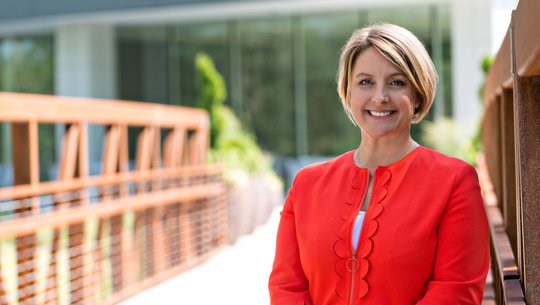
The distributed startup, cofounded by Sophia Wajnert, the Triangle-based former site lead for Credit Suisse (NYSE: CS), aims to both fill the tech talent gap and assist workers in war-torn countries. “Talent is everywhere, but opportunity is not, and we wanted to change that,” Wajnert said. The startup offers services such as project management and localization, but instead of hiring workers in the U.S., it’s targeting places such as the deserts of Africa and war-torn Ukraine. The Covid-19 pandemic showed remote working can and does work, she said. “We’re bringing the super powers of distributed work to people who have been displaced because of conflict or because of climate change,” Wajnert said. The company's co-founders include Nate Dalton and Charlie Liu.
Stashpad
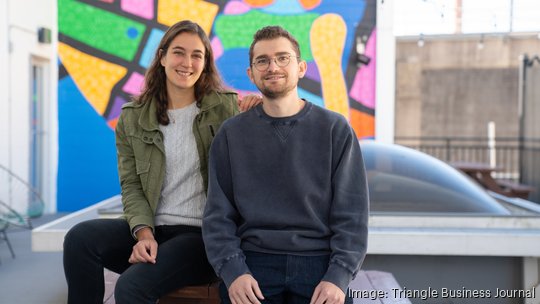
The Durham startup, cofounded by now-married couple Cara Borenstein and Theo Marin, moved to the Triangle more than a year ago from California. They said the startup began with one idea – building a better wiki. But the engineers Borenstein was talking to about the idea didn’t buy it. They wanted to talk about their processes. They were using a notepad to manage their thoughts and scratch out ideas. So Borenstein and Marin took a pivot and created Stashpad. Borenstein recently described the idea as a notebook to “help developers stay in flow so they can do their best work.” Investors have bought in. The firm recently raised nearly $1.8 million, according to securities filings. And, according to Borenstein, it recently launched its iOS app.
Traitology

CEO Fayaz Khazi launched the Research Triangle Park-based company last year off of a $25 million investment from GDM Holdings. The digital biology company is focused on developing novel traits in soybeans that can be scaled up and commercialized by partner companies. And Khazi has some history in the space that proves he can execute. Khazi joined Precision PlantSciences – later called Elo Life Systems – in 2017. Khazi led the firm, a subsidiary of Precision BioSciences, until it was spun out of the public company last year.
The Woobles

Cary-based crochet startup The Woobles had a banner 2022, with married co-founders Justine Tiu and Adrian Zhang appearing on “Shark Tank,” securing an investment (that they later walked away from) from Dallas Mavericks owner Mark Cuban. The Woobles’ story began more than two years ago with $200 worth of yarn and, according to what the founders said on “Shark Tank,” was on track to make $7 million last year from its crochet training kits. Tiu, a former Google designer, and Zhang, a former Wall Street trader, moved back to the Triangle during the pandemic and built up their company – just a few miles away from where they met, at Duke University.